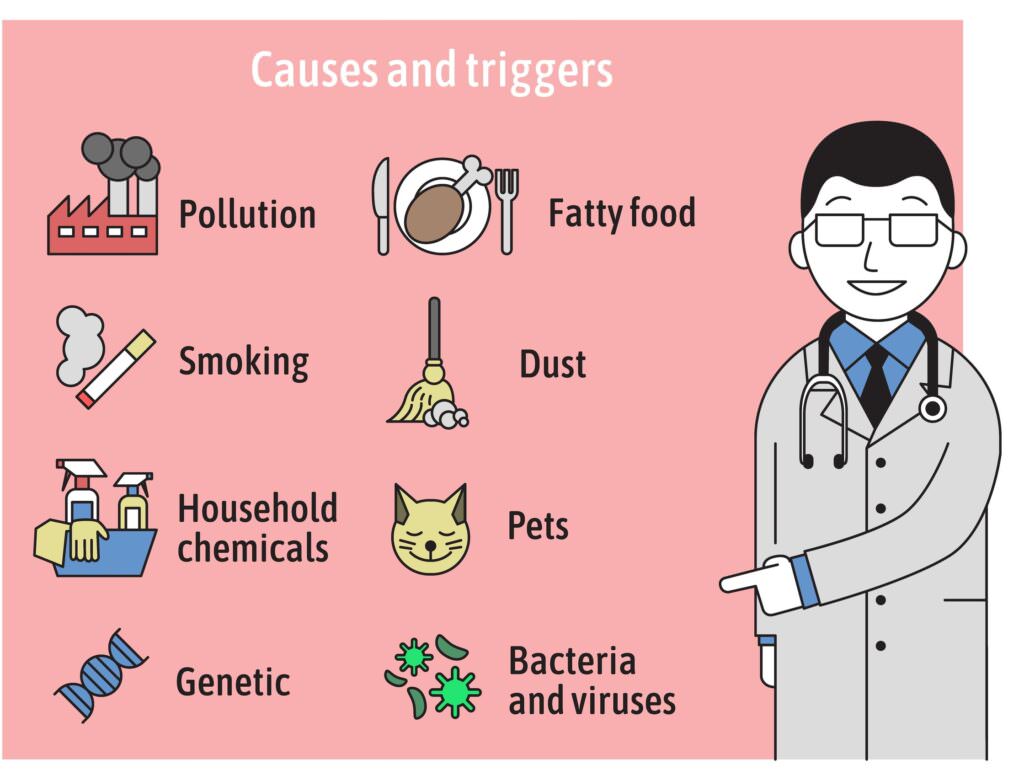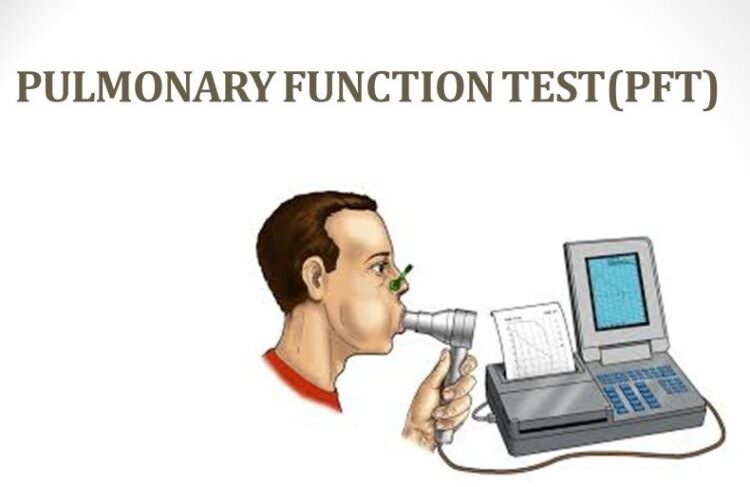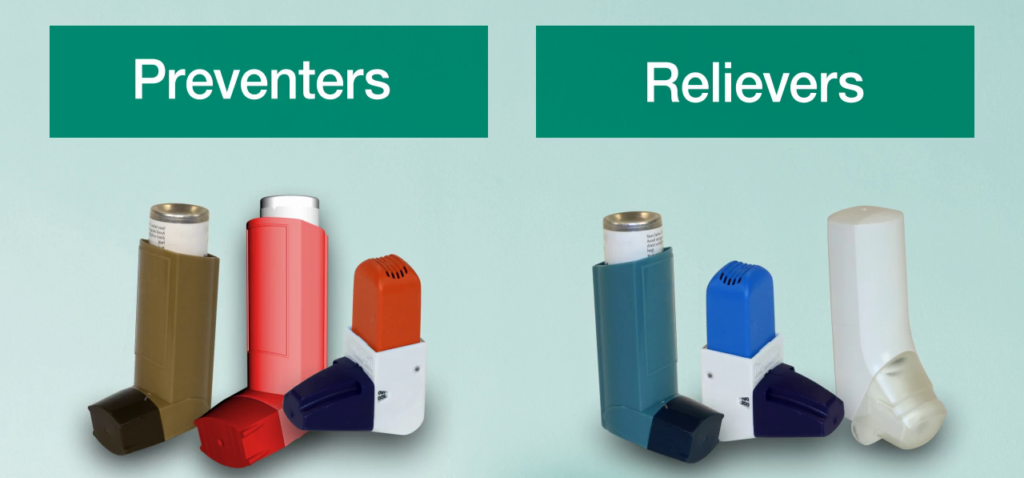Article on: Causes for Asthma and Life Insurance
.
.
'What Asthma is'
'What Asthma is' = a chronic long-term medical health condition that affects the airways in your lungs. Your lung airway's are small tubes that carry air in & then out of your lungs.
A normal lung airway is relaxed, wide & open - thus allowing the free flow of air; however asthma changes all this.
What is asthma NHS best described as when your lung airway tube walls become inflamed, sensitive & then thickened. This makes them more swollen, narrowed & clogged with extra sticky mucus, producing more phlegm than normal.
This process can then trigger a shortness of breath plus a tight chest. Asthma causes then either bouts of coughing, wheezing, plus whistling sounds when you inhale & breathe out.

Reportedly in the UK, over 5 million people have symptoms of asthma. That's around 1 in 12 of all UK adults and 1 in 11 of all UK children, all living with asthma issues.
Remember that asthma can be a killer, with nearly 1500 people dying annually from this breathing condition. Covid 19 has not helped these stats.
In this article we will examine asthma causes, triggers, symptoms, diagnosis, asthma type & medications. Then finally how these may all affect terms for life insurance, critical illness, income protection & private health insurance.

Causes for Asthma?
What are then the exact causes of asthma are still unknown. NHS Medical professionals however believe that these could be any of (or combination of) the following Asthma Triggers;
What is causes of asthma...
- Pollution irritants in the air, such as smoke, chemical fumes or perfumes
- Smoking either yourself or passive smoking
- Household chemicals
- Genetics
- Fatty foods, food additives
- Indoor allergens, such as dust mites & mould
- Pets & animal fur or feathers
- Bacteria
- Viruses, flu & colds or sinusitis
- Outdoor allergens & pollens from grass, weeds & trees
- Weather conditions & patterns like very cold air, heat or humidity
- Prescribed medications
- Exercise (although people with asthma will benefit from exercise)
- Emotions such as Stress or even Laughter
Asthma Triggers
Causes for asthma triggers may often start back in childhood. However, many adults can develop asthma too & later in life eg; female hormonal changes.
Looking at the below asthma triggers list, you can see it is wide & varied ie; we all to some extent have potential asthma triggers in our day to day lives.
Some things make what is asthma causes and triggers more likely, such as a history of allergies. However, the bottom line is despite much medical research, there's not currently enough evidence to know if any of these are what asthma causes.

Asthma Symptoms Adults?
Asthma symptoms in adults are usually fairly consistent. Any symptoms of asthma adults may get include all or some of the following;
- Difficulty breathing
- Constant coughing especially at night or early mornings
- Coughing during exercise or when you are laughing
- Wheezing (a whistling or squeaky sound in your chest when breathing, especially when exhaling)
- Chest pain & tightness
- Shortness of breath
- Common cold
- Feeling tired most of the time
- Associated skin conditions like eczema or allergies
Any asthma symptoms adults may get are all potentially serious, and can become deadly if left medically untreated. Note; With some Covid 19 and asthma symptoms sometimes seemingly similar, please test regularly to check for diagnosis.

Asthma Symptoms in a Child?
Those various asthma symptoms in a child usually gets are all very similar to adults. However, check these for the symptoms childhood asthma signs...
Breathlessness
- Your child gets out of breath playing around
- Or they stay out of breath for much longer
- Check to see how fast your child is breathing
- Listen to how their breathing sounds
- See if they’re using lots of their body when they breathe
- eg; shrugging or lifting their shoulders up & down
- Avoiding usual childhood playtime activities because they get breathless
We can all remember at school that child who stood out unfortunately - just because they were unable to do physical sports successfully.
Tight Chest
- A childhood ‘tummy ache’ is how they might describe it
- They might rub their tummy or chest
You may as a parent confuse this 'upset tummy' with say food poisoning, rather than symptoms child asthma types.

Wheezing
The most common reason why children wheeze is colds & viruses. GP's usually call this viral wheeze.
- Wheezing noises are not the same as other 'chesty sounds'
- It is a high-pitched whistling sound
- It usually when your child’s breathing out not in
- It can sometimes be hard to hear
- Your child’s GP may need to clearly listen for it with a stethoscope
Check if your child is wheezing more at night, or early in the mornings. Check if their wheezing won’t go away or it keeps coming back.
Cough
- Your child coughs more at night-time
- Or coughs more early mornings this is common in children with asthma
- Their coughing after doing physical exercise or being active.
- Asthma cough happens when they get excited or laughing
Does their coughing not go away or check if they keep coming back?
Conclusion: Concerned for your child about 'what is causes of asthma' then please visit your local medical professional.
How Asthma is Diagnosed?
A NHS GP will probably be able to test how asthma is diagnosed. However, your GP may refer you to a specialist in symptoms of asthma type adults get if they are unsure.
Questions asked will usually include...
- Asthma symptoms you specifically have
- When they happen ie; during the day, night time or both
- Frequency of symptoms asthma
- Anything that seems to trigger them
- Associated visible conditions eg; eczema or allergies,
- Family history of asthma or breathing issues
Asthma Control Test
There is no one single asthma control test that can be used to diagnose asthma. But there are several asthma control tests that can give your doctors a good idea when examining you, how likely you are to have asthma.
The main asthma control test 's used to help how your asthma type is diagnosed are:
- Spirometry Lung Function Test – you blow into a special machine that measures how fast you can breathe out. Lung Function test checks how much air you can hold in your lungs
- FeNO test – Fractional Exhaled Nitric Oxide. You breathe into a machine that measures the level of nitric oxide in your breath. It checks signs of inflammation in your lungs
- Peak Flow Test – you blow into a handheld device that measures how fast you can breathe out. It may be done several times over several weeks, to see if it changes over time
- Methacholine Challenge - when methacholine is inhaled, it will cause your airways to narrow slightly. If you react to this asthma control test, you will likely have it
- Sputum Eosinophils - involves you breathing in different concentrations of slightly salty water through a nebuliser. You then cough them up to produce analytical test sample
- Chest X-Ray & CT Scan - taken to produce a complete picture of the inside of your chest, nose & sinus. Imagining looks for sign of lung issues re breathlessness
- Bronchoscopy - allows a specialist to view inside your airways. They take a small sample of phlegm or tissue for examination after a bronchoscopy asthma control test
- Nasal endoscopy - uses a thin microscope to examine the inside of your nose, sinuses & throat. Used if your nose & sinuses may be triggering some of your symptoms
- Acid Reflux Test - stomach acid irritates your airways & may cause inflammation. Unclear whether treating acid reflux improves asthma symptoms, but works for some
- Manometry Test - checks how your oesophagus muscle ring pressure is working. Tests if acid reflux or gastro-oesophageal reflux disease (GORD) is contributory
- ECG - used to see whether your heart is triggering or causing some of your severe asthma symptoms. Also if your heart is healthy enough to prescribe certain asthma medication
- Questionnaires - includes Asthma Control Test (ACT), hyperventilation, anxiety or depression questionnaires
- Allergy Test - blood tests or skin prick tests. All these asthma control test 's are all looking for triggers for asthma symptoms allergies
All these various tests could be used by your NHS GP or onward referral to an asthma specialist.

Is Asthma COPD?
Chronic obstructive pulmonary disease or COPD is a specific lung condition where it’s difficult to breathe air out of the lungs. Your airways have become narrowed permanently & in this instance medication may or may not help.
The breathing symptoms may start similar to asthma but worsen. Some people who have asthma can go on to then develop COPD in later adult life. So is asthma COPD? No, but as some people have both COPD & asthma symptoms it is sometimes difficult to distinguish these 2 similar health conditions. Asthma smoking & COPD are also linked.
Home Treatment Asthma?
Are there any complementary home treatment asthma therapies? If you have bad asthma & curious if your usual asthma treatments could be home therapy complemented?
The answers are 'maybe' for some people. These home remedies work best when taken alongside your usual prescribed asthma medications.
It appears that there maybe some asthma home treatment therapies, that can maybe help ease some people's asthma, and others that can maybe help with stress.
Some natural remedies may be able to reduce the amount of asthma medication you need to take to hopefully improve the quality of your life.
- Massage therapy
- Mindfulness
- Hypnotherapy
- Vitamin D
- Acupuncture
- Salt pipes and salt caves
- CBD oils
- Herbal remedies
- Yoga
- Breathing techniques such as:
- The Buteyko method
- The Papworth method
NOTE: Risk alerts – always advise your GP if you are considering any additional home treatment asthma therapy. There maybe side effects. Asthma can be a killer.
Types Asthma
There are several asthma different types & all caused by a variety of reasons.
* Asthma Symptoms Allergies
Asthma symptoms allergies often occur together. This is called allergic asthma or allergy-induced asthma. Those same allergy substances that may trigger your allergic nasal rhinitis or hay fever symptoms eg; pollen, dust mites, pet hairs, may also have same asthma causes, signs & symptoms.
In some people, food or skin allergies may also then cause asthma symptoms. An asthma allergic response occurs when your immune system proteins (antibodies) mistakenly identify a harmless substance, such as pollen, as an invader.
In an attempt to protect your body from the substance, antibodies then bind to the allergen. These chemicals then released by your immune system lead to various allergy signs & symptoms eg; runny nose, nasal congestion, itchy eyes or skin reactions. For some people, this same asthma allergic reaction also affects their lungs and airways, leading to asthma symptoms.
* Seasonal Asthmatic
Some people only get asthma seasonal flare ups & only during certain times of the year eg; pollen hay fever seasons, or only during cold snaps. This is known as seasonal asthmatic.
While seasonal asthma type is always a longer term health condition, it is possible to be symptom free when your asthma triggers aren’t around.
* Asthma Cough Variant
Asthma cough variant is usually classed as a chronic condition. It involves frequent dry coughing, mainly at night. Your only symptom with cough varient asthma may be a dry, non-productive cough (you don't bring up any phlegm mucus) rather than also having usual shortness of breath, wheezing or chest tightness.
People who have a variant asthma cough or dry cough asthma do so because;
- Their coughing helps to bring some of their phlegm up - so thereby clearing their airways
- Their lungs produce more phlegm than normal - because their airways are usually more irritated
Typically, people with cough-variant asthma or asthma dry cough therefore will not experience the other classic asthma symptoms. Either way, what is asthma causes don't wait & please visit a medical professional.

* Asthma Occupational | Causes of Asthma
As the name implies occupational asthma occurs directly due by the work you do. Asthma occupational triggers are usually a type of allergic asthma that is work specific ie; it does not occur when you are away from work.
For example, you work as a secretary in an old building that houses a vetenary practise. You might be allergic to some of the animal furs, old building mould or the latex gloves dust all could trigger symptoms. ie; aero-allergens & irritants.
So in this example, occupational asthma could be both caused by the workplace or be work-exacerbated asthma - all triggered by various work-related factors. It is very difficult for a GP to therefore distinguish what is the exact asthma cause.
* Asthma Non Allergic | Causes of Asthma
If your asthma non allergic is triggered by factors other than usual allergens ie; extreme weather, heat or cold, exercise or infections, you may have nonallergic asthma.
Non-allergic asthma is a much less common type than asthma allergic. The medical causes are not well understood, but it seems to develop later into adult life, and so can be more severe.
* Exercise with Asthma | Causes of Asthma
Some people get exercise with asthma like symptoms triggered only when they exercise. It's often called 'asthma induced exercise'.
Another term for this is asthma exercise induced broncho constriction. It happens due to the tightening & narrowing of your airways (ie; broncho-constriction) but is not caused by having asthma.
If you don’t usually have a diagnosis of asthma, but only after exercise you are now getting symptoms asthma like ie; tight chest, coughing, breathlessness, or fatigue during or after exercising,
Exercise with asthma induced broncho constriction can mostly affect elite sports athletes or those people doing strenuous exercise but in very cold conditions. Either way, if this affects you then seek medical attention & guidance.
* Night Time Asthma | Causes of Asthma
Night time asthma symptoms are a sign sometimes that your asthma isn’t well controlled, and you may be at risk of an asthma attack.
Conversely, if your symptoms of asthma occur usually early in the mornings, it could be a sign your asthma night symptoms have been bad, even if you weren’t aware of it.
Here are 5 reasons why your nocturnal asthma symptoms may only come on at night time:
- Hot air – breathing in hot air can cause your airways to narrow in summer time. So if your bedroom is too hot at night, maybe try using a fan to keep cool
- Cold air - this might also trigger your asthma symptoms in winter time. Maybe keep your windows closed, air vents ajar or keep heating on lower in the bedroom
- How you sleep - lying on your back puts extra pressure on your lungs & chest. This can make it harder to breathe. It may also trigger a cough because nasal mucus can drip to the back of your throat
- Side effects - some asthma medications can give you night-time asthma side effects
- Triggers - various asthma triggers in your bedroom eg; dust mites in your pillows, blankets or mattress
* Asthma Bronchitis | Causes of Asthma
Acute bronchitis is an inflammation of the lining of your lung airways & can be caused by a virus or bacteria, which are contagious. Bronchitis Asthma are 2 main inflammatory airway conditions.
When asthma bronchitis occur together, the condition is called asthmatic with bronchitis.
There are many asthma from bronchitis triggers already mentioned that may initiate the release of these combined inflammatory substances.
You might wonder, is asthma bronchitis contagious? However, chronic asthma from bronchitis typically is not contagious.
Asthma attacks
An 'asthma attack 'is a sudden worsening of symptoms of asthma and is caused by the tightening of muscles around your airways (called a broncho spasm).
During these asthma attacks, the lining of these airways also becomes more swollen & more inflamed. Much thicker mucus & much more than normal is then produced.
These 3 factors trigger what is an asthma attack. Signs of an asthma attack may include...
- Severe wheezing when breathing both in & out
- Coughing that will not stop
- Tightened neck & chest muscles, called retractions
- Difficulty talking
- Very rapid breathing
- Chest tightness or pressure
- Feelings of anxiety or panic
- Pale & sweaty face
- Blue lips or blue fingernails
- Worsening symptoms despite use of your asthma medications
Mild asthma attacks are quite common. However, what is asthma attack signs should hopefully respond when your airways open up within a few minutes to a few hours after taking your asthma treatment.
More severe asthma attacks are usually less common. They can last longer and do require immediate NHS medical help. So you & your family should keep an eye out for 'what is asthma attack symptoms'.
Conclusion: It is important to recognize what is asthma attack & treat even mild symptoms of asthma attacks to help you prevent more severe episodes and keep your asthma under control.
Asthma BTS Guidelines | Causes of Asthma
Asthma BTS guidelines (British Thoracic Society) state;
- Health professionals are advised to assess all their patients for future asthma attack risk to help tailor future care & treatments for asthma
- Those patients whose asthma is not under control after using standards 'controller therapies' should be referred for specialist asthma care
All qualified Health professionals should focus on asthma attacks prevention.
This is one of the key areas of national advice guidelines for asthma treatment in their updated management of 'Asthma BTS guidelines'
Treatments for Asthma

.
NHS professionals may prescribe a variety of available treatments for asthma symptoms, as there is currently no cure.
What is asthma inhaler = medical devices that let you breathe in their medicine. Tablets and other treatments to asthma may also be needed if it's more severe. There are various types of asthma inhalers;
Type of Asthma Inhalers?
There are 3 main type of Asthma Inhalers:
- Preventer inhalers - stop asthma symptoms developing
- Reliever inhalers - relieve symptoms of asthma when they occur
- Combination inhalers - an inhaler that does both ie; prevent & relieve
* Asthma Inhaler Brown
Asthma inhaler brown or beige are preventer inhalers. The brown inhaler name Beclometasone or "brown puffer" are asthma inhaler with steroid used if you have asthma or COPD as they help stop you getting symptoms. Their brand names are Clenil, Qvar
Beclometasone asthma inhaler brown are mainly available on NHS prescription only. Beclomethasone is a type of steroid medicine or corticosteroid inhaler. Some type of asthma inhalers contain beclometasone mixed with other medicines to help your asthmatic breathing.
- Metered dose inhalers - give the asthma medicine in a spray form (aerosol) & used with a spacer.
- Dry powder inhalers - give the medicine in a dry powder instead of a spray.
- Breath actuated inhalers - release a spray of medicine when you begin to inhale.
It is also available as cream and ointment or in tablets should you have other health issues which may affect you. Steroid inhalers are only usually on NHS prescription. Common type of asthma inhalers include:
- fluticasone
- beclometasone
- mometasone
- budesonide

* Blue Inhaler for Asthma
Blue inhalers for asthma are reliever inhalers. Ventolin Salbutamol is the blue inhalers name. It is also given as capsule tablets or syrup for those who cannot use their blue inhalers very well.
How many puffs blue inhaler?
- 1 or 2 puffs of salbutamol when needed
- Maximum of 4 x per 24 hours
- Irrespective of whether you have 1 or 2 puffs per time
- If you have to use your blue inhaler more than 4 x per 24 hours
- It could mean that your condition is getting worse
- So more likely to get side effects eg; increased heart rate, headaches, jitteriness & nervousness
- You therefore may need different treatment to asthma
If you have severe asthma or COPD, it may also be given using a nebuliser, a machine that helps you to breathe in your medicine as a mist, using a mouthpiece or mask. This can be used in hospital or you may be given one to control your condition at home.
* Purple Inhalers
Purple inhalers for asthma (Seretide) are a combination inhalers. Using both corticosteroid & bronchodilator inhalers helps to reduce inflammation in the lungs and open the airways.
These combination purple inhalers Seretide are prescribed for those whose asthma condition hasn't been controlled well enough by just a regular asthma inhalers steroid use. Seretide purple inhalers combines both types of medicine into one single inhaler for the signs & symptoms for asthma.
Life Insurance with Asthma

Can you get Life Insurance if you have Asthma?
Getting life insurance with asthma at standard terms is possible for underwritten applications (but only if well controlled). Does asthma affect life insurance? YES is the answer.
If your asthma control is poor, with recent inhaler dosage changes, frequent steroid usage or recent switching of medications by your GP, it could mean an insurance health rating.
Worst case scenario, some Insurers may even refuse to offer any insurance at all (or at least for the time being) until your asthma is under better control eg; recent hospitalization or a borderline COPD diagnosis
As brokers, note some UK Life Insurers may charge you 'health rated' asthma life insurance rates but some others may not.
So, to best ensure you get life insurance if you have asthma, in order to best determine whether or not terms maybe offered, please have any asthmatic related details to hand. Also your latest asthma medications names to declare as & when needed on the life insurance application.
Unsure what your asthma treatments all are called or were? We recommend that you contact your GP surgery asap. If not, Insurers could automatically overrate or decline the premium by assuming your "asthma control levels" are worse than it is, or not well managed, which is not what you want.
Asthmatic Life Expectancy
Asthmatic life expectancy varies between housing, location and country studies. Unfortunately, the Covid Pandemic has also reduced average UK life expectancy by around 1 year as it affects our respiratory systems.
Younger Britons are dying from asthma at a much higher rate than their European counterparts examined in a new health study, researchers have revealed.
Experts have found the UK is also anguishing near the bottom of an international league table for a host of other health problems.
Is Asthma a pre existing condition for Insurance?
Is asthma a pre existing condition for insurance. YES is the answer.
The Insurers application questions re asthma typically asked…
- When diagnosed with "symptoms asthma"?
- How many medications do you take?
- Admission to hospital re asthma causes
- Any other associated health or breathing issues?
- Familial history?
All insurance application naturally ask lots more health & lifestyle questions eg; smoking status, drinking, height & weight. From your BMI kg, they can work out if this is also a factor to consider for life insurance with asthma.
Most Life Insurance coverage policies include terminal illness benefit, which usually means you have less than 12 months to live (terminal illness therefore is not to be confused with a critical illness policy). As such, take this into account for life insurance with asthma, where medical questions are asked & any issues over claims.
Note: if you have various other associated health issues, then we recommend you get Broker help & advice here if unsure. This can be complex area into what is considered normal terms re asthma for life insurance via some UK Insurers.

Types of Life Insurance for Asthmatics
There are 2 main types of life insurance with asthma symptoms in the UK Protection marketplace:
1] Term Insurance
Term Life Insurance is a simple plan that pays out a cash sum if you died during the fixed time period your policy runs for. The sum paid out on death insurance stays level for family lifecover or decreasing for mortgage protection.
The premiums usually remain level during the term, whether you are near the policy beginning or end. Most term plans also include free 'terminal illness' cover. You can choose options of Lump Sums or Family Income Benefits & also if you want your cover to be inflation proofed.
The longer any level term insurance runs, then the more expensive it costs ie; 40 years term maybe double or more the cost than 20 years, as the insurance risks are higher as you get older. Insurers may allow you to take a term insurance plan upto age 90.
2] Whole of Life Insurance
Whole of Life Insurance policy, always pays out if you die ie; whenever this happens (as long as you have kept up with monthly payments & T&C's). For someone with asthma issues, whole life insurance maybe the most expensive compared to term insurance, as it will always payout.
Note: Over 50's Lifecover asks no medical questions about any health causes of asthma. It could always be a choice if your asthma causes you problems, or you have other poor health issues.
Consider placing the policy into trust to help avoid probate or Inheritance Tax IHT issues.
Causes Asthma & Income Protection Insurance PHI
An Income Protection PHI Insurance will usually not payout any claim benefits just for a asthma diagnosis, unless it was serious enough to keep you off working, based on your policy terms. It could be you were asked to have a medical test at the time you took out the plan which also checked your asthma symptoms, or the Insurers had your GP report?
There are several types of income protection sickness insurance for those with asthma. Budget cover that pays out for say 1 or 2 years per claim. Comprehensive cover that pays out potentially full term per claim.
For example, your budget PHI plan says it will pay you after 4 weeks illness and for upto 1 year per policy claim and if unable to do your own occupation. If you are told by GP to now take 4 months off work to recover before returning back to work, then the PHI could payout an income to you tax free after 4 weeks for upto 4 months.
However, if at time of original PHI application you already were using "asthma inhalers" & maybe other health issues, then there may well be health rated terms & exclusions been applied. This means you potentially could not claim for existing asthma related issues, if it was an exclusion.
We recommend you get Broker help & advice here if unsure for any new PHI application, as this can be complex area.

Asthma & Critical Illness Insurance
Critical Illness Cover is an insurance policy that pays out a tax-free sum to help protect you, should you suffer a critical illness & become seriously ill, as specified by the Insurers critical illness coverage policy.
Does Critical Illness cover a claim diagnosis of Asthma? No. However, if this should then lead to other associated serious critical illness diagnosis such as chronic lung disease, then the answer maybe - Yes.
Contact us for Professional Life Insurance Agent help.
Asthma Health Insurance
The good news is free asthma healthcare is usually available for all on the NHS, for those who may not afford asthma health insurance.
Private health insurance may however offer some advantages over the NHS due to speed of access, that could take weeks (also due to the health pressures of pandemic 2020's). Also, if you are not happy with your GP’s asthma treatment or diagnosis then consider health insurance for asthma patients.
- Extra help for any difficult asthma symptoms
- Quicker access to tests & asthma treatments
- 2'nd medical opinion
- Longer appointment consultant times
- ie; They can fully get into your symptoms asthma, concerns & triggers
Is Asthma covered under Health Insurance?
Health insurance for asthma is available for routine management of chronic conditions like asthma but usually via more comprehensive extended health cover benefits. Note; some basic private health plans may not offer health insurance for asthma sufferers (always check T&C's). Contact us for Broker help.
Asthma health insurance accessed privately is ideal for people worried about getting the right diagnosis, or getting extra help for difficult asthma symptoms.

Causes of Asthma re Insurance | Broker FAQ
Importance of Disclosure & Claims | Causes of Asthma
All Insurers are in business to protect, insure & payout. Life Insurance is therefore based on your full disclosure at the time you take the original policy out (even if it costs more for life insurance asthma sufferers) ie; being 100% as honest & accurate as possible. It is not always easy to remember all your historic health details when applying.
The Consumer Insurance Act 2013 says you must not be acting careless, deliberate or reckless manner when applying. If so, it may not payout ! eg; If you have family history of diabetes or heart issues (even if you are okay currently) then you must tell them. Or, you forget to even advise you have asthma because it does not currently cause you any health problems.
Should you make a claim, your Insurers will send you a claim form for you to complete. Once received back, they will usually contact your GP to confirm any health details disclosed ie; what is asthma nhs confirmed diagnosis.
They will then assess if your insurance claim is valid and cross check if you originally disclosed all the correct details - on your life insurance, income protection or critical illness claim. If you look at most Insurers recent claims payout, you will see that it is Good (but like most Insurers – not 100%).
What if my health changes after I have taken the policy out?
Any health or lifestyle changes since, usually does not void your existing life policy, if it wasn’t relevant at that time of initial underwritten insurance asthma application. For example, you have lung issues or COPD diagnosed due to asthma several years afterwards. In this instance, the insurers should not classify the original application for life insurance asthma biased. It maybe the Insurers request GP reports when you originally apply, to check any health details disclosed. Likewise they may not.
So take care to doubly re-check on your application what you initially disclosed to the Insurers, as this information then stands now and in the future. Please check your original T&C’s.
Alternatively, if your own Insurers originally applied 'health rated terms' on life insurance for asthmatics, then it can be worth reviewing your application. If your health has improved and symptoms asthma now under control. It could be we could get better terms via another Insurer? Contact us for Broker help
Article on What is Causes Asthma by Martyn Spencer Financial Adviser (2025)

For reassurance re health for men & women – we review many of the best Life Insurers selling Life Insurance in UK (inc NI)
NOTE: This generic article touches on various medical issues & information re 'causes of asthma'. The latest health guidance on this may change regularly re Covid 19, so any article comments may not always be accurate. However, we are not GP's or health professionals so always seek medical advice & latest guidance via NHS if unsure.
 Myself
Myself My
My My Income
My Income









 'There is...ONLY 1 YOU'
'There is...ONLY 1 YOU' 




















